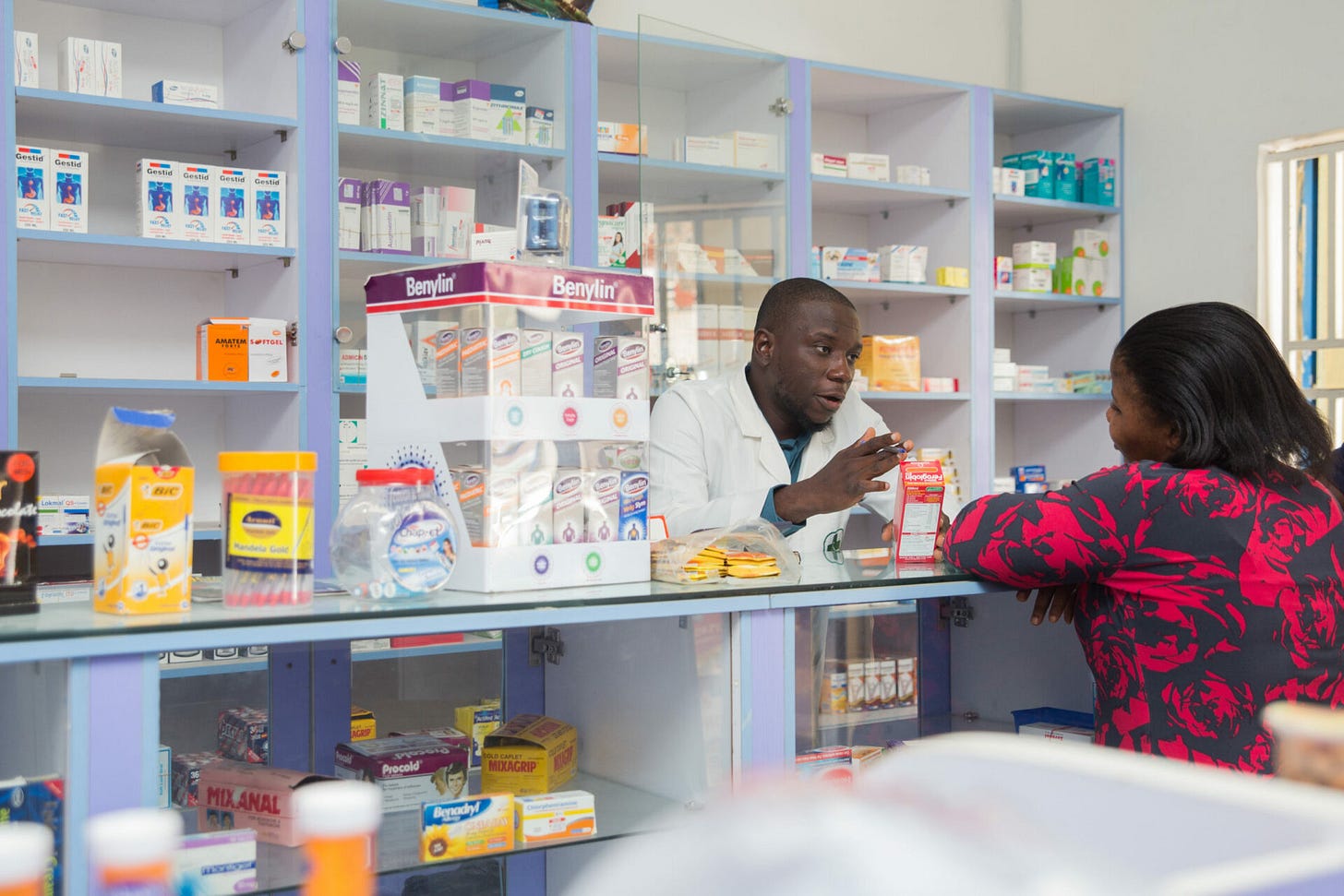The forex crisis is putting Nigerian lives at risk
The shortage of foreign exchange reserves has made imported drugs even more expensive, while shrinking local production
From Lilongwe to Abuja, foreign exchange shortages are revealing deep vulnerabilities in how African economies operate. In Nigeria, despite President Bola Tinubu’s attempted reforms, dollars remain scarce and the prices of imported goods are skyrocketing. Among them are life-saving drugs.
About 70% of the medicines that Nigerians take are imported, and about 80% of people pay for healthcare out of their own pocket, according to a survey in November last year. Patients now sometimes find that drugs cost as much as six times more than they did last year.
Nicholas Ishadimu was recently prescribed Augmentin, a common antibiotic often used to treat typhoid in Nigeria. At the pharmacy, he was told the price was 24,000 naira ($29.28). He couldn’t buy it. He says that for his last prescription, several months earlier, he had bought the same drugs in the same quantity for 4,500 naira ($5.49).
“Being able to pay for healthcare has always been a challenge for a lot of Nigerians. Now this contributes to that barrier to access if people cannot afford drugs,” said Chibuike Alagboso of Nigeria Health Watch.
The forex shortage is also shrinking local production. In August, drugs multinational GlaxoSmithKline closed its Nigeria operation. Its sales had fallen to nearly half of what they had been the year before and the company’s half-year report blamed forex shortages, saying they had made it difficult for it to keep a consistent supply of drugs on the market.
About 70% of the medicines that Nigerians take are imported, and 80% of people pay for healthcare out of their own pocket. Patients are finding that drugs cost as much as six times more than they did last year.
“The currency pressures are creating huge forex translation losses for multinationals like GSK that are heavily dependent on raw material imports. With the dollar illiquidity lingering, these issues will persist,” said Dumebi Oluwole, an analyst at Stears, a business and economic insights firm in Nigeria.
This then locks anyone with chronic illness or a serious health emergency in poverty. Even before the latest price increases, Babatunde Akeem, a school teacher in Lagos, had switched from the diabetes drugs prescribed by the doctor to a cheaper brand. The cheaper drug turned out to be less effective, and by last February he had lost a lot of his eyesight. Today he spends about 13% of his 120,000-naira ($146.74) salary on less effective medication.
He often has to borrow from family and friends to make ends meet. “The loan I repaid this afternoon was spent on medication,” he told The Continent.
It also locks Nigeria itself into poverty. “If you have a population of people who are sick and cannot afford healthcare, that is a population that is not productive,” Alagboso said. The situation is compounded by the flight of doctors and nurses out of Nigeria and other African countries to the global north, which leaves healthcare systems dangerously understaffed. Last week, a data analysis by The Continent found that 15 of the world’s richest countries have brought 55,000 African doctors into their own health systems.




